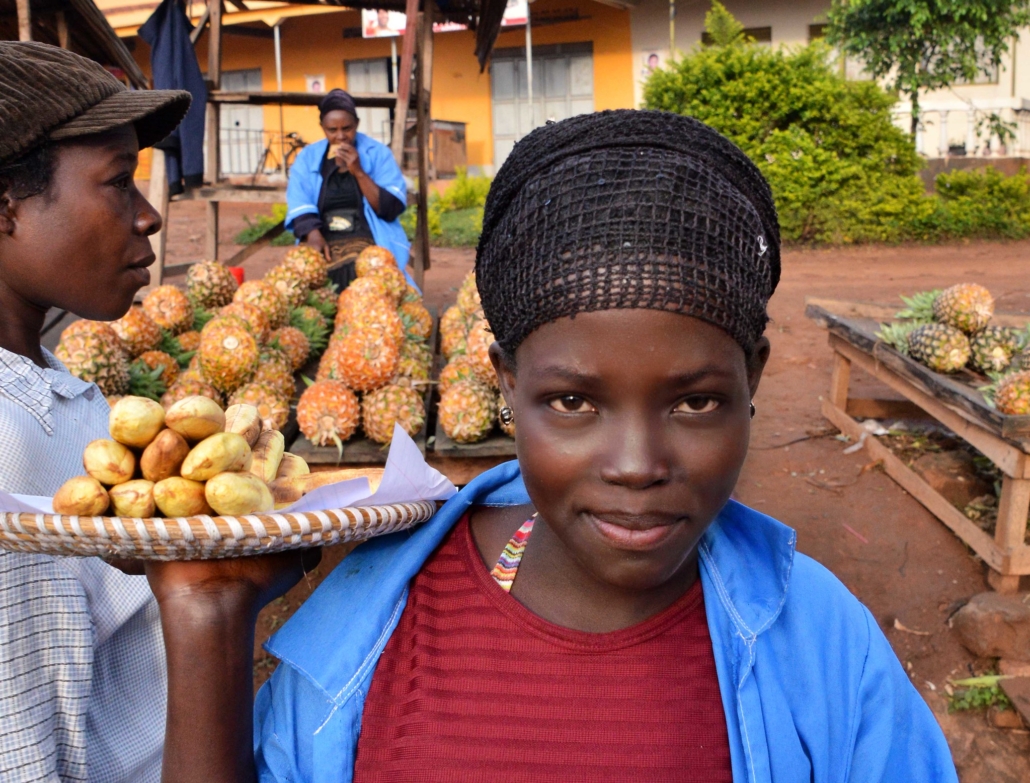Eliminating Gender-Based Violence in Uganda
 Spotlight Initiative is a United Nations (UN) program aiming at eliminating violence against women and girls. In partnership with the European Union (EU) and other organizations, it stands as the world’s largest targeted effort to end all forms of gender-based violence. The initiative’s interventions center around six primary pillars. However, its main focus is grassroots and creative efforts, as it “believes that civil society is at the core of transformative and sustainable change.” Spotlight Initiative highlights five people who have participated in its training courses, how it has affected their lives and how it has helped them eliminate gender-based violence in Uganda.
Spotlight Initiative is a United Nations (UN) program aiming at eliminating violence against women and girls. In partnership with the European Union (EU) and other organizations, it stands as the world’s largest targeted effort to end all forms of gender-based violence. The initiative’s interventions center around six primary pillars. However, its main focus is grassroots and creative efforts, as it “believes that civil society is at the core of transformative and sustainable change.” Spotlight Initiative highlights five people who have participated in its training courses, how it has affected their lives and how it has helped them eliminate gender-based violence in Uganda.
Angela Muhindo
Angela Muhindo, a resident of Kasese District in Western Uganda, has had a physical disability since childhood, exacerbating the gender-based violence and exclusion she has faced throughout her life. In her community and many others, this is simply the norm and these same women and girls face much difficulty accessing proper health care, education and employment. Without income and land, they are even more vulnerable to exploitation. Being female and having a disability makes one “two to three times more likely than other women to experience violence.”
After Muhindo inherited her mother’s land, her uncles attempted to steal the land from her with force, believing that as a woman with a disability, she had no right to the land. To better understand her rights, she attended a Spotlight Initiative-supported training course that the National Union of Women with Disabilities of Uganda (NUWODU) ran through UN Women, where she learned about inheritance rights and realized that she had legal rights to the land. With this information, she stood up to her relatives and fought for what was rightfully hers. She now lives on her land, speaks about gender-based violence in Uganda and advocates for those living with disabilities on a local radio station.
Timothy Mbene Masereka
Timothy Mbene Masereka, a village health team member in Kasese District, Western Uganda, treated community members with various illnesses. However, he felt helpless in one major health issue he witnessed over and over again: violence against women and girls, especially during his house calls. Acknowledging the predominantly male-centric nature of his community, he grappled with a deficiency in the expertise required to address this pervasive problem in a locality where discussions about gender-based violence were deemed taboo and shameful. In Uganda, 95% of women and girls experience some kind of gender-based violence after the age of 15.
Masereka attended Spotlight Initiative training sessions where he learned how to talk to men and boys about such violence, teaching them to be part of the solution and not the problem. He learned how to coach couples in resolving disputes using conversation and how to identify and support women experiencing violence, finding ways to remove them from such situations.
Lilian Nakayingo, Chantal Mukeshimana and Marcyline
Lillian Nakayingo, Chantal Mukeshimana and Marcyline, all living in Kasese District, Western Uganda, have escaped violence and become activists in their community. They all attended Spotlight Initiative-supported training courses, which equipped them with the knowledge they needed to help themselves and other women in their community. Their efforts, combined with many others, will continue the civil society efforts and create this sustainable and transformative change in ending gender-based violence in Uganda and other low-income and middle-income countries.
Other Impacts of the Initiative
One in three women worldwide has experienced physical or sexual violence and in Uganda, nearly every woman or girl will experience gender-based violence at some point. However, these small and large targeted efforts made by activists worldwide and Spotlight Initiative’s global reference groups are creating transformative and sustainable change to bring an end to one of the most pervasive issues in human rights today.
The program has also supported the change in legislation that advantaged male children in inheritance and land issues. With its support, the Ugandan Parliament passed the Succession (Amendment) Bill in March 2021, formally recognizing women’s rights in owning land. Additional efforts that the initiative has made include supporting the Forum for African Women Educationalists (FAWE) to advocate for an end to discriminatory policies preventing pregnant women and girls from their right to education. Spotlight Initiative’s dedication to the “Leaving No One Behind” principle and their dedication to representing groups in other intersecting forms of discrimination sets them apart, creating a positive impact in developing nations and ending gender-based violence.
– Aadya Deepak
Photo: Flickr
